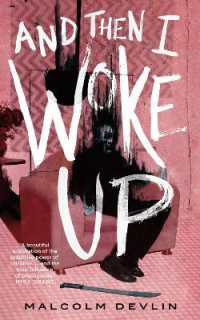- ホーム
- > 洋書
- > 英文書
- > Cinema / Film
Full Description
During the late 1960s and 1970s, as Film Studies crystallized into an academic discipline, psychological realism became linked to both classical Hollywood and continuity editing. The style was derided as theatrical, or worse, bourgeois, a product of a capitalism that valorized individual personality. This view persists, though often tacitly. However, we must attribute some degree of mindedness to any figure that we might call a character, even if that psyche is established not by a performer but by another aspect of the film, such as editing. Through the study of performer and director Mike Nichols, Kyle Stevens questions the aesthetic-ideological stance against psychological realism. He argues that characters' actions are not just filmed concepts but can be film concepts whose forms resonate politically. Nichols' oeuvre centers on moments when words and gestures cease to mean, or to mean in typical ways. In doing so, he exposes the pretense of tropes that constitute conventionally realist characters, and participates in changes in U.S. cultural attitudes toward language, subjectivity, embodiment, and the social, particularly with regard to sexual politics. This book thus sheds light on Hollywood history, historicizes Film Studies' turn away from humanism, and reassesses paradigms that hold psychological realism to be "transparent"-thereby blinding us to potentially subtle and subversive uses of this aesthetic choice.
Contents
Introduction - Mike Nichols and the Politics of Character ; Chapter 1 - Nothing Goes Unheard: Nichols and May, Improvisation, and the Skewing of Language ; Chapter 2 - Nichols' Comedy of Remarriage ; Chapter 3 - The Graduate and the Subversion of Silence ; Chapter 4 - Carnal Knowledge: The Close-Up, Duration, and Affective Impotence ; Chapter 5 - The Minds of Chameleons: Nichols and Streep ; Conclusion - Nichols' Cinema of Conversation ; Bibliography ; Index







